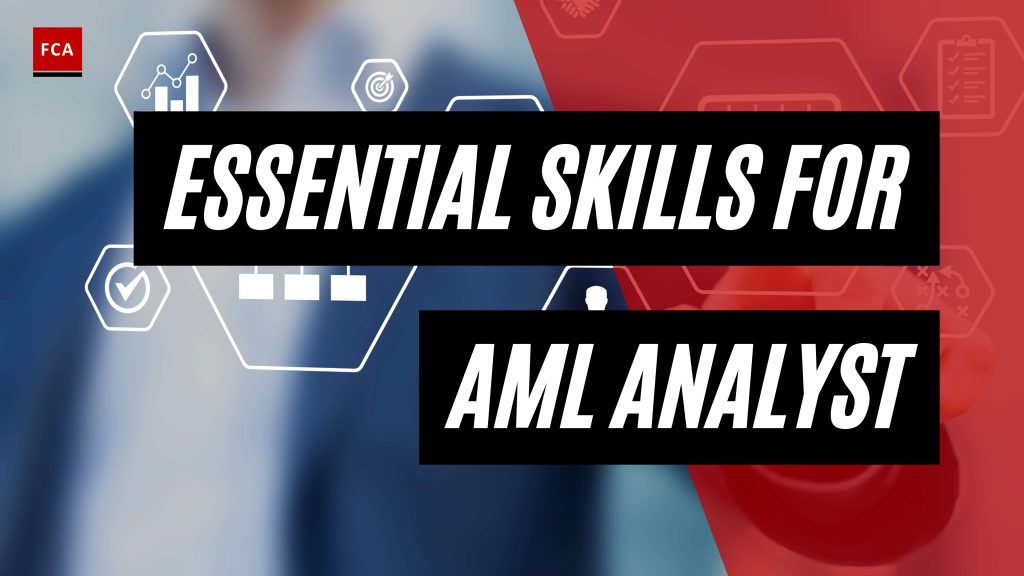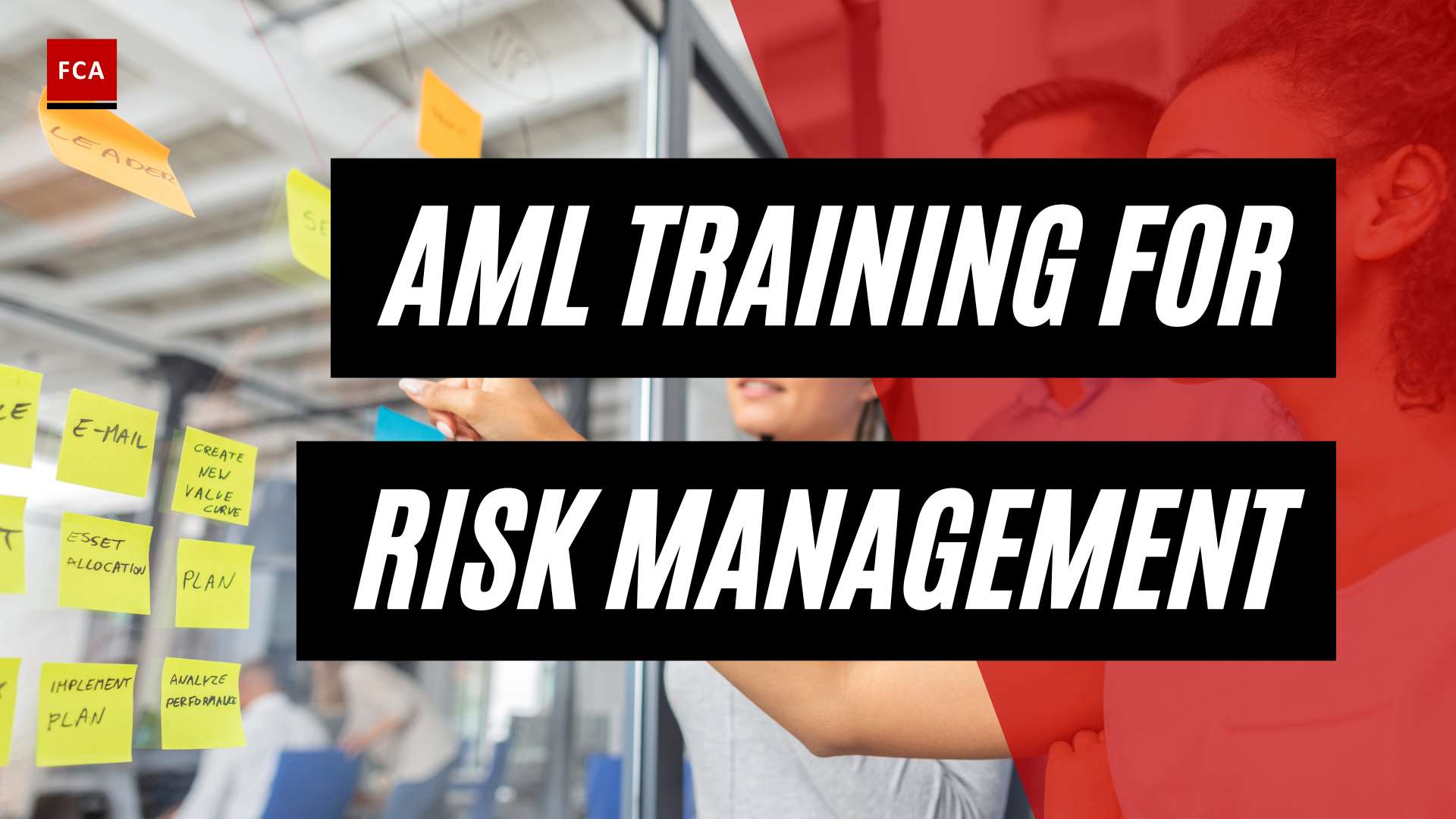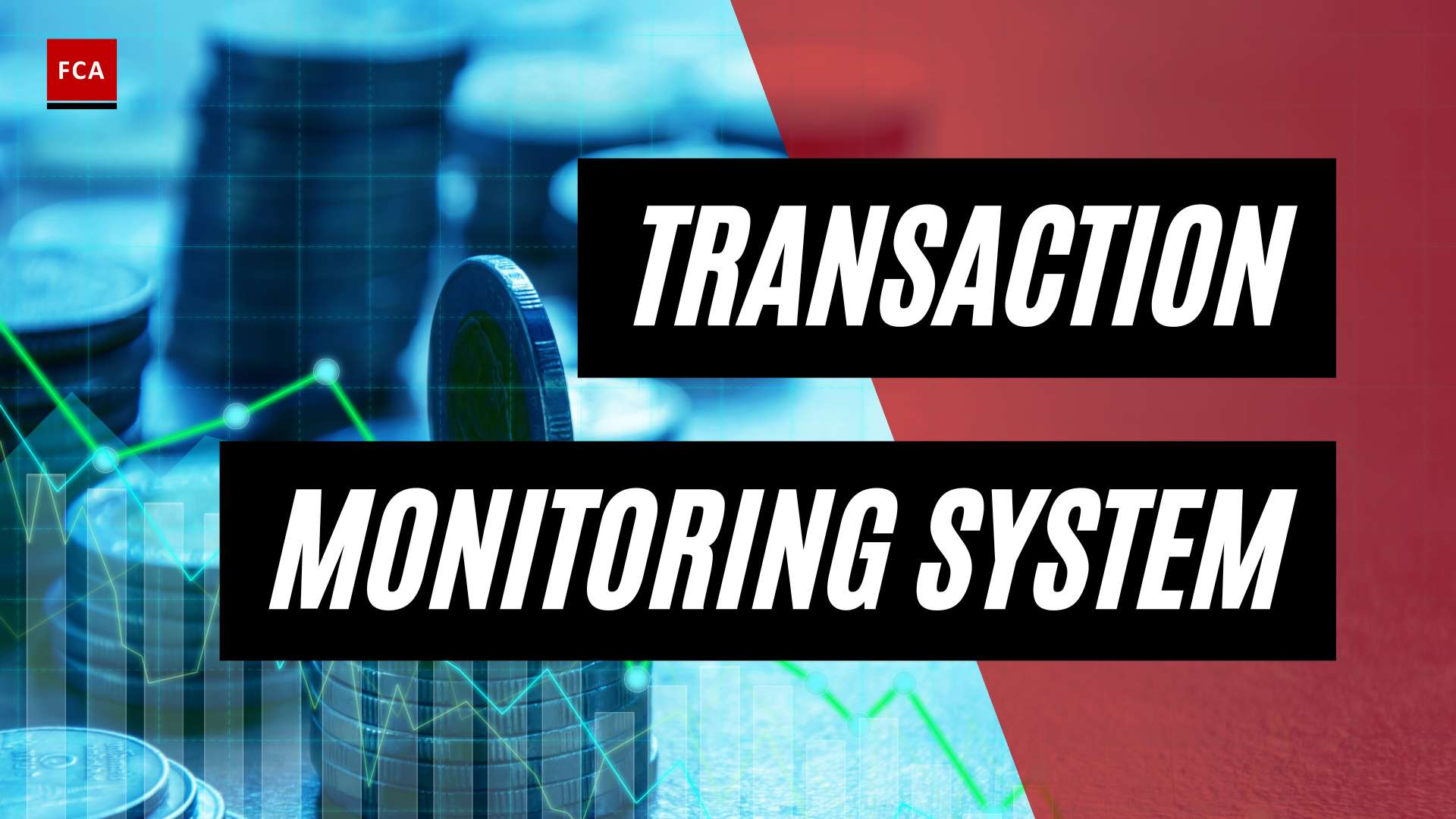Introduction to AML Analyst Skills
In the complex world of combating money laundering and financial crimes, Anti-Money Laundering (AML) analysts play a crucial role. These professionals possess a unique set of skills that enable them to identify and prevent illicit activities within financial institutions. Understanding the importance of AML analysts and the essential skills they possess is vital for anyone interested in pursuing a career in this field.
Importance of AML Analysts
AML analysts are the front line of defense against money laundering and other financial crimes. Their work is essential in safeguarding the integrity of the financial system and protecting institutions from legal and reputational risks. By diligently monitoring transactions, conducting investigations, and implementing AML regulations, these professionals help ensure that illicit funds are detected and reported to the appropriate authorities.
The significance of AML analysts extends beyond the financial sector. Their efforts contribute to global efforts in combating organized crime, terrorism financing, and other illicit activities. By disrupting the flow of illicit funds, AML analysts play a vital role in promoting stability, security, and integrity in both the financial industry and society as a whole.
Overview of Essential Skills
To effectively carry out their responsibilities, AML analysts must possess a diverse range of skills. These skills encompass analytical abilities, knowledge of AML regulations, investigative competencies, communication proficiency, technological acumen, critical thinking, and adaptability. Let’s delve into each of these essential skills in more detail.
| Skill | Description |
|---|---|
| Analytical Skills | AML analysts must possess the ability to analyze complex data, identify patterns, and connect disparate pieces of information. Attention to detail and accuracy are paramount to ensure comprehensive and reliable analysis. |
| Knowledge of AML Regulations | Understanding the intricacies of anti-money laundering laws and regulations is crucial for AML analysts. Familiarity with regulatory frameworks enables them to effectively identify and report suspicious activities. |
| Investigative Skills | AML analysts must be skilled in conducting thorough investigations, gathering evidence, and analyzing financial transactions. Their investigative prowess helps uncover potential money laundering schemes and identify the individuals involved. |
| Communication Skills | Effective written communication is essential for AML analysts to document their findings accurately and present them in a clear and concise manner. Strong verbal communication and interpersonal skills are vital when collaborating with colleagues, law enforcement agencies, and other stakeholders. |
| Technology Skills | AML analysts need to be proficient in utilizing AML software and tools to efficiently analyze large volumes of data. They should also possess data analysis and reporting skills to transform complex information into actionable insights. |
| Critical Thinking and Problem-Solving | AML analysts must be adept at identifying patterns, red flags, and anomalies that may indicate potential money laundering activities. They need to think critically, make informed decisions, and implement appropriate measures to mitigate risks. |
| Continuous Learning and Adaptability | Given the ever-evolving nature of financial crimes, AML analysts must stay updated with industry trends, regulatory changes, and emerging technologies. Flexibility and adaptability are essential in this dynamic field. |
By mastering these essential skills, AML analysts are equipped to effectively fulfill their responsibilities and contribute to the fight against money laundering. If you’re interested in pursuing a career as an AML analyst, exploring the AML career skills and obtaining relevant certifications can further enhance your professional prospects.
Analytical Skills
A successful AML analyst possesses strong analytical skills that enable them to effectively navigate the complex world of financial transactions and identify potential instances of money laundering. This section will delve into two essential analytical skills required for AML analysts: the ability to analyze complex data and attention to detail and accuracy.
Ability to Analyze Complex Data
AML analysts must have the ability to handle large volumes of complex data and derive meaningful insights from it. This involves understanding various financial transactions, patterns, and anomalies that may indicate potential money laundering activities. By analyzing data from multiple sources, such as bank records, transaction reports, and customer profiles, AML analysts can identify suspicious activities and take appropriate actions.
Analyzing complex data requires proficiency in data analysis techniques and tools. AML analysts should be familiar with statistical analysis methods, data visualization techniques, and software platforms that facilitate data analysis. By leveraging these skills and tools, analysts can uncover hidden relationships and patterns that may not be apparent at first glance.
Attention to Detail and Accuracy
Attention to detail and accuracy are paramount for AML analysts. Even the smallest oversight or error in analyzing financial data could have significant consequences, potentially leading to the failure to identify suspicious activities. A keen eye for detail ensures that AML analysts thoroughly review and scrutinize each transaction, document, or piece of evidence to identify any abnormalities or red flags.
AML analysts must pay attention to both the big picture and the finer details. They need to analyze transactional data holistically while also examining individual transactions to spot any inconsistencies or anomalies. By maintaining a high level of accuracy in their work, AML analysts can ensure the effectiveness of their investigations and contribute to the fight against money laundering.
To support these skills, AML analysts should be proficient in using technology tools and software that aid in data analysis and reporting. This allows them to efficiently process and analyze large volumes of data while maintaining accuracy and attention to detail. For more information on the technology skills required for AML professionals, refer to our article on AML software proficiency.
Mastering the analytical skills of analyzing complex data and maintaining attention to detail and accuracy is crucial for AML analysts. By honing these skills, professionals in the AML field can effectively identify potential money laundering activities and contribute to the prevention and detection of financial crimes.
Knowledge of AML Regulations
To excel as an AML analyst, a comprehensive understanding of anti-money laundering laws and regulatory frameworks is essential. AML analysts play a crucial role in identifying and preventing money laundering activities, making it imperative for them to possess in-depth knowledge of AML regulations.
Understanding Anti-Money Laundering Laws
AML analysts must have a solid understanding of the anti-money laundering laws and regulations that govern financial institutions and businesses. This includes being familiar with legislation such as the Bank Secrecy Act (BSA) in the United States, the Financial Action Task Force (FATF) recommendations, and other local AML laws relevant to their jurisdiction.
By understanding the underlying principles of these laws, AML analysts can effectively carry out their responsibilities, which include detecting suspicious transactions, conducting investigations, and reporting any suspicious activity to the appropriate regulatory authorities. A thorough grasp of the legal framework helps analysts identify potential risks and ensure compliance with AML regulations.
Familiarity with Regulatory Frameworks
In addition to anti-money laundering laws, AML analysts must be well-versed in the regulatory frameworks established by financial regulatory bodies. These frameworks provide guidelines and requirements for financial institutions to implement effective AML programs and controls.
For example, in the United States, the Financial Crimes Enforcement Network (FinCEN) issues regulations and guidance that financial institutions must adhere to. AML analysts need to be familiar with these regulations and understand how they apply to their specific industry and organization.
By staying up-to-date with regulatory changes and requirements, AML analysts can ensure that their organization’s AML program remains compliant and effective. This includes understanding the obligations related to customer due diligence, suspicious activity reporting, record-keeping, and ongoing monitoring.
Maintaining a strong knowledge of AML regulations and regulatory frameworks is crucial for AML analysts to successfully fulfill their responsibilities. It enables them to effectively identify potential money laundering activities, implement appropriate controls, and ensure compliance with the ever-evolving regulatory landscape.
For individuals interested in pursuing a career as an AML analyst, it is worth considering obtaining relevant certifications to enhance their knowledge and demonstrate their expertise in AML regulations. To learn more about the certification requirements and options available, check out our article on AML certification requirements.
By combining their knowledge of AML regulations with other essential AML analyst skills, professionals in this field can contribute significantly to the fight against money laundering and the preservation of the integrity of the financial system.
Investigative Skills
To excel as an AML analyst, strong investigative skills are vital. AML analysts are responsible for conducting thorough investigations and gathering and analyzing evidence to detect and prevent money laundering activities. Let’s explore these important skills in more detail.
Conducting Thorough Investigations
AML analysts must possess the ability to conduct comprehensive investigations. This involves conducting research, gathering relevant information, and examining financial transactions to identify potential suspicious activities. Analysts should be skilled in using various sources of information, such as databases, public records, and financial statements, to gather evidence and build a clear picture of the transactions under scrutiny.
During investigations, AML analysts should exercise critical thinking and problem-solving skills. They must be able to identify patterns, anomalies, and red flags that may indicate potential money laundering activities. By thoroughly examining transactional data, they can uncover unusual or suspicious patterns that warrant further investigation.
Gathering and Analyzing Evidence
Accurate and detailed evidence is crucial in AML investigations. AML analysts must possess strong skills in gathering and analyzing evidence to support their findings. This includes documenting all relevant information, such as transaction details, account information, and supporting documentation. They should be meticulous in their approach, ensuring that all evidence is properly recorded and organized.
Once the evidence is gathered, AML analysts must analyze it to identify any suspicious patterns or activities. This requires a keen eye for detail and the ability to connect the dots between various pieces of information. By examining the evidence, analysts can uncover any potential money laundering schemes and provide recommendations for further action.
To effectively conduct investigations and analyze evidence, AML analysts must be proficient in using AML software and tools. These tools assist in data analysis, transaction monitoring, and generating reports. AML analysts should also possess strong knowledge of AML regulations and compliance requirements to ensure that their investigations align with legal and regulatory frameworks.
By honing their investigative skills, AML analysts play a crucial role in combating money laundering activities. Their ability to conduct thorough investigations and gather and analyze evidence is essential in identifying potential risks and protecting financial institutions from illicit activities.
Communication Skills
In addition to possessing strong analytical and investigative abilities, effective communication skills are crucial for AML analysts. AML professionals must be able to convey complex information clearly and concisely, both in written and verbal forms. Additionally, they need to possess excellent interpersonal skills to collaborate effectively with colleagues and stakeholders. Let’s explore the two key aspects of communication skills required for AML analysts: effective written communication and strong verbal communication and interpersonal skills.
Effective Written Communication
AML analysts are responsible for producing various documents, including reports, memos, and compliance documentation. These written materials often contain critical information that is used by stakeholders, regulators, and law enforcement agencies. Therefore, it is essential for AML analysts to have a strong command of written communication.
Key skills for effective written communication include:
-
Clarity and Conciseness: AML analysts must be able to present complex concepts and findings in a clear and concise manner. This involves organizing information logically, using plain language, and avoiding jargon or technical terms that may not be understood by all readers.
-
Accuracy and Attention to Detail: Attention to detail is vital when writing AML-related documents. Analysts must ensure that information is accurate, consistent, and supported by relevant evidence. This includes conducting thorough research, verifying facts, and carefully reviewing their work for errors or inconsistencies.
-
Structure and Organization: Well-structured and organized documents are easier to read and understand. AML analysts should use headings, subheadings, and bullet points to guide the reader and highlight key information. They should also follow any specific formatting guidelines or templates provided by their organization.
Strong Verbal Communication and Interpersonal Skills
In addition to written communication, AML analysts must also possess strong verbal communication and interpersonal skills. This is important for collaborating with colleagues, conducting interviews, and delivering presentations to stakeholders.
Key skills for strong verbal communication and interpersonal skills include:
-
Active Listening: Active listening involves fully focusing on and understanding what others are saying. AML analysts need to actively listen to colleagues, clients, and other stakeholders to gather information effectively and demonstrate empathy.
-
Effective Questioning: AML analysts must ask relevant and thoughtful questions during interviews or meetings to gather necessary information. This includes asking open-ended questions to encourage detailed responses and probing for clarification when needed.
-
Negotiation and Persuasion: AML analysts often need to negotiate with colleagues or stakeholders to ensure compliance with AML regulations or implement necessary changes. They must be able to present their perspectives effectively, using logical reasoning and persuasive arguments when necessary.
-
Conflict Resolution: AML analysts may encounter conflicts or disagreements during investigations or when working with others. They should possess conflict resolution skills to address issues constructively and find mutually beneficial solutions.
Strong communication skills are essential for AML analysts to effectively convey their findings, collaborate with others, and contribute to the overall success of AML efforts. By continuously honing their written and verbal communication skills, AML analysts can enhance their professional impact and contribute to a more robust AML program.
Technology Skills
In the ever-evolving field of Anti-Money Laundering (AML), technology plays a vital role in enhancing the efficiency and effectiveness of AML analysts. AML professionals must possess certain technology skills to navigate through the vast amount of data and utilize specialized software and tools to detect and prevent money laundering activities. This section will explore two essential technology skills for AML analysts: proficiency in AML software and tools, and data analysis and reporting skills.
Proficiency in AML Software and Tools
AML professionals need to be proficient in using specific software and tools designed to aid in their investigations and compliance efforts. These tools are specifically developed to streamline AML processes, enhance data analysis, and facilitate regulatory reporting. AML software and tools typically offer features such as transaction monitoring, customer due diligence (CDD), watchlist screening, and case management.
By effectively utilizing AML software and tools, analysts can efficiently process large volumes of data, identify suspicious transactions, and generate accurate reports. Familiarity with these tools enables analysts to conduct in-depth investigations, monitor customer behavior, and identify potential money laundering risks. AML professionals should stay up to date with the latest advancements in AML software and tools to ensure they are leveraging the most effective resources available.
Data Analysis and Reporting Skills
Data analysis is a critical skill for AML analysts as they navigate through vast amounts of financial data to identify patterns and anomalies that may indicate potential money laundering activities. AML professionals need to have a strong understanding of data analysis techniques and be comfortable working with large datasets. They should possess the ability to extract relevant information, identify trends, and detect suspicious activities.
AML analysts must also possess strong reporting skills to effectively communicate their findings to stakeholders, including management and regulatory authorities. Clear and concise reporting is essential for conveying complex information in a comprehensible manner. Analysts should be proficient in producing accurate reports that comply with regulatory requirements and provide valuable insights to drive decision-making processes.
Developing data analysis and reporting skills can greatly enhance an AML analyst’s ability to identify and report suspicious activities, contributing to robust AML compliance efforts.
By mastering technology skills such as proficiency in AML software and tools, and data analysis and reporting skills, AML analysts are better equipped to tackle the challenges of combating money laundering. These skills, combined with a strong foundation in AML regulations knowledge and other essential AML skills, enable professionals to effectively fulfill their roles in preventing financial crimes.
Critical Thinking and Problem-Solving
AML analysts require strong critical thinking and problem-solving skills to effectively identify patterns and red flags, as well as make informed decisions in their investigations.
Identifying Patterns and Red Flags
One of the key responsibilities of AML analysts is to identify patterns and red flags that may indicate potential money laundering activities. By analyzing large volumes of data, they need to be able to spot anomalies and unusual transactions that deviate from regular patterns. This requires a keen eye for detail and the ability to connect seemingly unrelated pieces of information.
AML analysts should be familiar with common money laundering techniques and typologies to recognize suspicious activities. They need to be able to detect unusual transaction patterns, such as structuring, layering, or smurfing, and identify any attempts to disguise the source or destination of funds. By understanding the various red flags associated with money laundering, AML analysts can effectively identify potential risks and escalate them for further investigation.
Making Informed Decisions
Once patterns and red flags have been identified, AML analysts must make informed decisions on how to proceed with their investigations. This requires the ability to analyze the available evidence, assess the level of risk, and determine the appropriate course of action.
In making these decisions, AML analysts need to consider the regulatory requirements and legal obligations surrounding anti-money laundering efforts. They must also take into account the potential impact on the organization and the wider financial system. Having a solid understanding of AML regulations and AML compliance is crucial in making informed decisions that align with legal and regulatory frameworks.
Furthermore, AML analysts should possess strong problem-solving skills to navigate complex scenarios and overcome obstacles that may arise during their investigations. They need to be resourceful and adaptable, finding creative solutions to challenges and effectively managing their time and resources.
By combining critical thinking and problem-solving skills, AML analysts can effectively navigate the dynamic landscape of money laundering activities. Their ability to identify patterns and red flags, as well as make informed decisions, is essential in preventing financial crime and ensuring compliance with AML regulations. AML professionals with these skills play a vital role in safeguarding the integrity of the financial system and protecting organizations from illicit activities.
Continuous Learning and Adaptability
In the ever-evolving field of Anti-Money Laundering (AML), continuous learning and adaptability are essential qualities for AML analysts. Staying up-to-date with industry trends and being adaptable in a dynamic field are crucial for success.
Keeping Up with Industry Trends
To excel as an AML analyst, it is vital to stay abreast of the latest industry trends, regulatory changes, and emerging money laundering techniques. AML regulations and best practices evolve over time, and it is essential to stay informed to effectively detect and prevent financial crimes.
By regularly reading industry publications, attending conferences, and participating in professional training programs, AML analysts can stay informed about the latest developments in the field. Keeping up with industry trends not only enhances their knowledge but also helps them adapt their strategies and techniques to combat evolving money laundering methods.
Flexibility and Adaptability in a Dynamic Field
The field of AML is dynamic and constantly evolving. AML analysts must be flexible and adaptable to keep pace with changing regulations, advancements in technology, and emerging trends. They need to quickly adjust their investigative approaches and techniques to effectively identify and prevent money laundering activities.
Being adaptable also means being open to learning and incorporating new tools and technologies into their workflow. AML analysts should be proficient in using AML software and tools to streamline their investigations and enhance their analytical capabilities. For more information on AML software proficiency, refer to our article on AML software proficiency.
Moreover, being adaptable in the AML field requires having a growth mindset and embracing continuous learning. AML analysts should actively seek opportunities for professional development, such as pursuing AML certifications and attending relevant training programs. This enables them to enhance their skills and stay ahead of the curve in the ever-changing landscape of AML.
By continuously learning and adapting to industry trends and challenges, AML analysts can sharpen their skills and effectively contribute to the fight against money laundering. Being flexible and adaptable allows them to navigate the complex world of financial crime and stay one step ahead of money launderers.
In conclusion, continuous learning and adaptability are crucial skills for AML analysts. By keeping up with industry trends and being flexible in a dynamic field, AML analysts can enhance their knowledge, improve their investigative techniques, and effectively combat money laundering activities.









